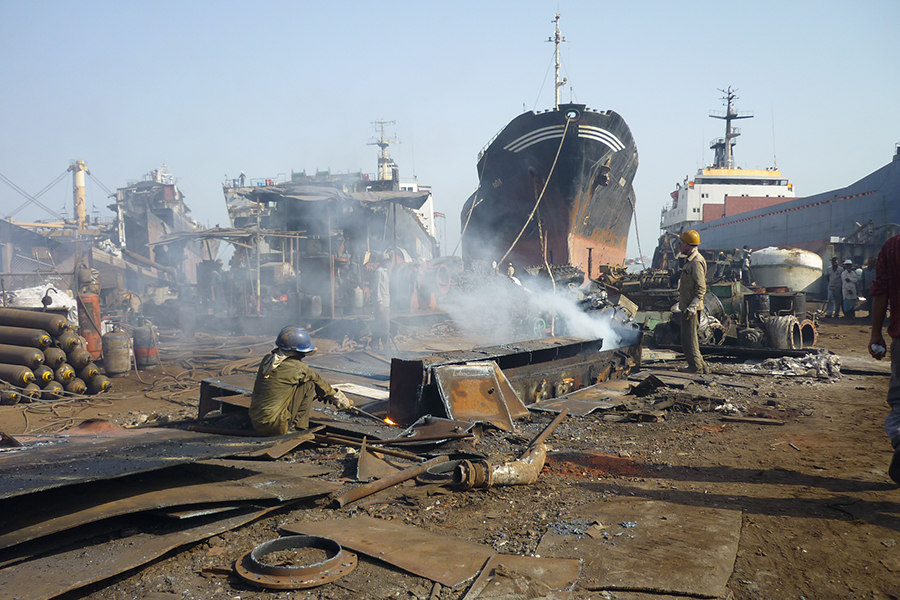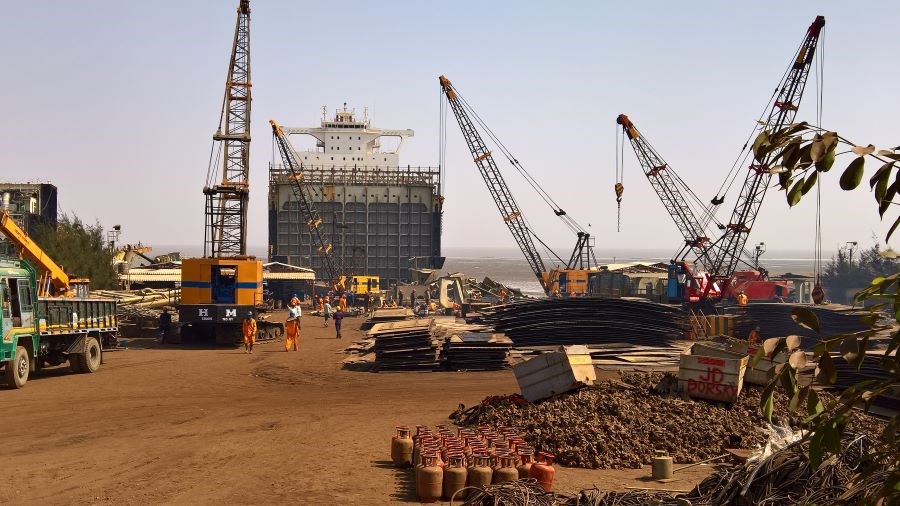


It was tense right up to the end, but enough countries ratified the Hong Kong Convention at the very last minute. As a result, shipbreaking, one of the most dangerous industrial sectors in the world, is becoming safer and cleaner. It was a long struggle and a lot of work still needs to be done. For over fifteen years, Mondiaal FNV has fought for the convention and for an improvement in the working conditions of shipbreakers. What have Mondiaal FNV and its partners done to achieve this success?



Climbing a towering shipwreck without any protection against falls. Handling and dismantling metal with bare hands. Entering a ship’s hold without a gasmask or even just a face mask. Working between piles of uncovered asbestos. Welcome to the world of shipbreaking. It is for good reason that demolishing ships is billed as one of the world’s most dangerous jobs.
Who were involved in Mondiaal FNV's cooperation towards better conditions for shipbreakers and the Hong Kong Convention?
Read about their commitment and experiences1. Shipyards must register all workers. 2. All workers must be given safety training. 3. Responsibilities must be clearly defined. 4. There must be proper sanitary facilities. 5. Medical help must be available. 6. An emergency plan must be in place. 7. There must be a list of hazards and instructions on how to deal with them

1. Shipyards must register all workers. 2. All workers must be given safety training. 3. Responsibilities must be clearly defined. 4. There must be proper sanitary facilities. 5. Medical help must be available. 6. An emergency plan must be in place. 7. There must be a list of hazards and instructions on how to deal with them
Text: Wereld in Woorden. Photos: Joop van Oord and the interviewees, unless otherwise specified.
Meld je hier aan voor onze nieuwsbrief
en ontvang maandelijks nieuws en verhalen van Mondiaal FNV.
De FNV gebruikt functionele cookies die noodzakelijk zijn om de websites zo goed mogelijk te laten functioneren. Daarnaast maken we optioneel gebruik van statistische en marketing cookies. De functionele en statistische cookies maken geen gebruik van persoonsgegevens. De marketing cookies worden gebruikt voor het personaliseren van advertenties. Onderstaand kun je toestemming geven voor het gebruik van cookies. Voor meer informatie, of om op ieder moment je instellingen weer te wijzigen, kun je terecht op onze pagina over de cookies.
Statistische cookies
:Geven inzicht in hoe onze bezoekers de websites gebruiken.
Marketing cookies
:Deze cookies gebruiken we om de websites op jouw voorkeur af te stemmen.